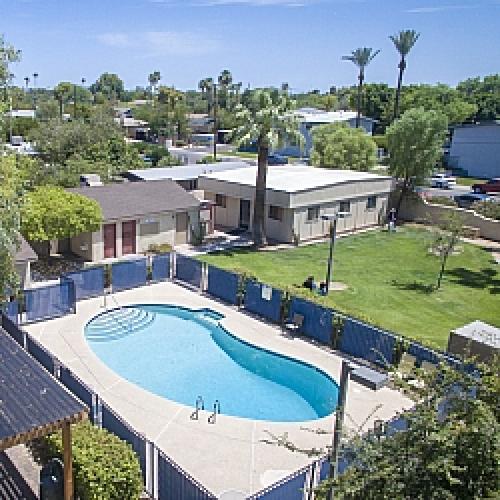FILTERS
Facility Amenities
Treatment and Services Offered
Languages offered
Accepted age groups
Insurance Providers
| Prev |
Trying to Find a Rehab Center in Arizona?
Usually referred to as rehab centers, residential treatment centers are specially built to provide support to individuals experiencing severe addiction or mental health issues. These treatment centers promote recovery by providing residents with a setting that is free from the stressors of day-to-day life, fostering addiction recovery and facilitating the treatment of behavioral issues. Residential treatment employs trained health care professionals who provide therapeutic services around the clock. While inpatient care is very common, outpatient rehab services are also often offered at these mental health facilities.
In addition to being effective instruments in addressing drug and alcohol abuse, rehab centers also serve as resources for individuals with behavioral and mental health concerns. People affected by depression, for example, may check into depression treatment centers and receive personalized treatment. While there, these individuals may also learn more about their condition from meetings with mental health counselors and simply by communicating with residents who are also experiencing episodes of depression. A variety of rehab centers specialize in addressing specific health issues such as overwhelming stress, gambling addiction, and personality issues.
Mental Health Care in Arizona
According to the Parity or Disparity: The State of Mental Health in America 2015 survey conducted by Mental Health America (MHA), Arizona displays a high prevalence of mental health concerns and low rates of access to mental health facilities, resulting in a ranking of 51 out of all 50 states, plus the District of Columbia. In terms of the availability of the mental health workforce, the state is ranked 45th, and the data shows that both adults and youth have difficulty accessing mental health care services. Over 256,000 adult Arizona residents who are experiencing severe mental health problems report that their needs are not adequately met. Almost 8% of Arizona youth display alcohol and drug abuse or dependency, the 4th highest rate in the country.
The Gallup-Healthways Well-Being Index, however, gives Arizona an overall well-being rank of 19th out of 50 for the year 2013. According to the index, the state is ranked 16th in emotional health, 15th in work environment, and 10th in healthy behaviors. Prescott and Tucson were two communities that ranked consistently high in healthy behaviors from 2012–2013.
Demographic Statistics for Arizona
Arizona’s population amounts to approximately 6.6 million. Roughly 24% of residents are under 18 years of age; over 15% are aged 65 or more. Almost 86% of residents graduated from high school, and nearly 27% have a bachelor’s degree or higher. The median household income from 2009–2013 was approximately $50,000. Just under 18% of individuals live below the poverty level, which is a bit higher than the national average of 15%.
References:
- Arizona Department of Health Services. (n.d.). Division of behavioral health services. Retrieved from http://www.azdhs.gov/bhs/
- Gallup-Healthways Well-Being Index. (2013). Arizona. Retrieved from http://cdn2.hubspot.net/hub/162029/file-626959511-pdf/WBI2013/Arizona_2013_State_Report.pdf?t=1418935567368
- Mental Health America. (2014). Parity or disparity: The state of mental health in America, 2015. Retrieved from http://www.mentalhealthamerica.net/sites/default/files/Parity%20or%20Disparity%202015%20Report.pdf
- United States Census Bureau. (n.d.). State & county quickfacts: Arizona. Retrieved from http://quickfacts.census.gov/qfd/states/04000.html









